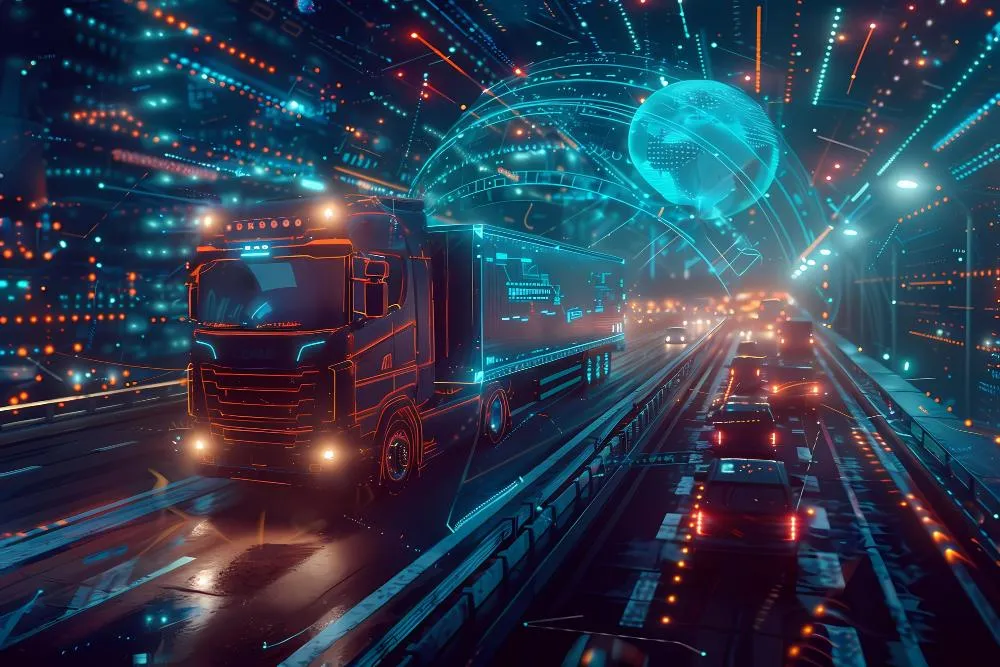
The Rise of Digital Freight: How Tech is Transforming Global Logistics
In the past, freight forwarding was a complex and time-consuming process, heavily reliant on paperwork, manual coordination, and limited visibility. Today, digital transformation is reshaping the logistics industry, making global freight faster, more efficient, and highly automated.
But what exactly is driving this change? And why are traditional freight forwarding methods no longer sufficient in the modern supply chain? This article explores how technology is revolutionizing global logistics and what it means for businesses worldwide, with a spotlight on innovative platforms like iCargos.
1. The Traditional Freight Forwarding Challenge
Freight forwarding has always been a backbone of global trade, ensuring that goods move seamlessly from one country to another. However, the traditional model has several pain points:
Lack of real-time visibility – Shippers and consignees often struggle to track cargo movements, leading to uncertainty.
Manual processes and inefficiencies – Booking shipments, handling customs paperwork, and coordinating with carriers are time-consuming and prone to errors.
Complex pricing structures – Freight rates fluctuate due to multiple factors, making it difficult for businesses to get transparent pricing.
Slow response times – With different parties involved, traditional freight processes can take days or even weeks to finalize.
As global supply chains become more complex, these challenges slow down business operations and increase logistics costs. This is where digital freight technology comes into play, with platforms like iCargos.com leading the charge.
2. How Technology is Transforming Global Logistics
The shift toward digital freight forwarding is driven by several key technologies that are addressing long-standing inefficiencies. iCargos.com, a cloud-based courier, cargo, and logistics management platform, exemplifies this transformation through its comprehensive suite of tools.
AI and Automation: Enhancing Efficiency
Artificial Intelligence (AI) and automation are streamlining logistics workflows. iCargos leverages AI for automated route optimization, ensuring the most efficient paths for deliveries while reducing fuel costs and transit times. Automated booking systems and workflows allow businesses to secure shipments within minutes, while predictive analytics forecast demand and minimize disruptions.
Real-Time Tracking and IoT: Improved Visibility
With the integration of Internet of Things (IoT) sensors and GPS tracking, iCargos provides unparalleled real-time visibility into shipments. Businesses and customers can monitor cargo movements via a user-friendly customer portal or mobile app, enabling quick reactions to delays and proactive rerouting for enhanced reliability.
Digital Marketplaces: Simplified Freight Booking
iCargos acts as a digital marketplace hub, connecting shippers, forwarders, and carriers on a single platform. Users can compare options, book instantly, and manage end-to-end logistics with seamless third-party integrations, including eCommerce platforms and payment processors, for faster and more transparent transactions.
Blockchain: Securing Supply Chains
While blockchain enhances security across the industry, iCargos complements this with robust Proof of Delivery (POD) features, capturing verifiable evidence like photos and GPS data. This tamper-proof documentation streamlines customs clearance and payments, reducing fraud in cross-border operations.
Cloud-Based Solutions: Connecting Global Operations
As a fully cloud-based platform, iCargos enables anytime, anywhere access to shipping data. Its operation and customer portals foster seamless collaboration, eliminating miscommunication delays and supporting multi-branch management for global scalability.
3. The Benefits of Digital Freight for Businesses
For companies involved in global trade, adopting digital freight solutions like iCargos offers several advantages:
Faster Shipping Processes – Automation in booking, routing, and documentation cuts transit times significantly.
Lower Costs – AI-driven optimizations and automated invoicing reduce operational expenses and errors.
Greater Transparency – Real-time tracking and POD features provide full control and eliminate uncertainty.
Improved Compliance – Digital tools ensure accurate, error-free documentation for smooth regulatory adherence.
Enhanced Decision-Making – Built-in analytics deliver actionable insights to refine supply chain strategies.
4. Will Digital Freight Replace Traditional Freight Forwarding?
While technology is transforming logistics, it won’t completely replace traditional freight forwarding. Instead, digital solutions like iCargos will complement existing processes, allowing freight forwarders to operate more efficiently. Human expertise remains essential for handling complex shipments, regulatory challenges, and personalized solutions.
The companies that embrace digital freight technology, powered by platforms like iCargos.com, will gain a competitive edge, delivering faster, more cost-effective, and transparent services.
The rise of digital freight is revolutionizing the logistics industry, reducing inefficiencies, enhancing transparency, and improving global trade operations. As businesses seek smarter, more agile supply chain solutions, adopting digital freight technology is no longer an option—it’s a necessity.
At iCargos, we empower businesses with cutting-edge tools for courier, cargo, and logistics management. From real-time tracking to WhatsApp ordering, our platform is designed to optimize your operations. Stay ahead of the curve and explore how iCargos can transform your supply chain today! Request a live demo at [email protected] or call +92 300 4510131.


